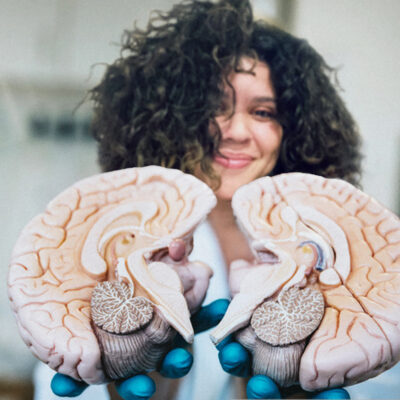Selina Pacheco Sciences
Beating the Odds: Is Mental Health at Stake for High-Achieving Children in Poverty in the ABCD Study?
Childhood family income is a powerful predictor of academic achievement and mental health. Here, we ask whether children living in poverty who beat the odds by succeeding academically are subsequently protected from–or more at risk for–internalizing disorders. Prior research indicates that high-performing children in poverty tend to have higher coupling between lateral frontoparietal network (LFPN; supports executive functions), and Default Mode Network (DMN; supports internally-directed thought); this is in contrast to research with high-income children, for whom this pattern of connectivity is linked to worse academic performance, and importantly, more depressive symptomatology. Thus, an open question is whether this pattern of connectivity adaptive for children in poverty has maladaptive long-term consequences, particularly for mental health. In this pre-registration, we plan to analyze longitudinal data from nearly 10,000 children (1,000+ in poverty) in the ABCD study at baseline (ages 9-10y) and two years later (11-12y). We will perform linear mixed effects models to investigate whether both higher LFPN-DMN connectivity and grades at age 9-10 are linked to more internalizing symptoms longitudinally, and whether this differs for low- and high-income children. One possibility is that children in poverty with higher LFPN-DMN connectivity get better grades but have worse mental health, perhaps because of socially prescribed perfectionism. We will further investigate potential mechanisms for this association, including life events and neighborhood safety. This research has important implications for supporting children in poverty by illuminating mechanisms for, and potential maladaptive consequences of, resilience for children growing up in unequal structural conditions.
